JPEG-AI Call for Evidence
IEEE MMSP2020 Challenge
© 2020. All rights reserved.
The JPEG AI database was constructed to (i) evaluate the performance of state-of-the-art learning-based image coding solutions, and (ii) to be used for training, validation and testing of novel learning-based image coding solutions. This dataset will be made available to all participants to the Challenge. The JPEG AI dataset will be organized according to:
Training dataset: The training dataset aims to provide a set of images to create a model suitable for a learning-based image codec solution. However, the proponents may also use a different training dataset provided that it is fully identified in the proposal description and, ideally, made available for future developments.
Validation dataset: The validation dataset aims to provide a set of images to be used during the training to validate the convergence of the training algorithm used by some learning-based image codec solution.
Test dataset (hidden): The test dataset cannot be used neither for training nor validation and will be used to evaluate the final performance of learning-based image coding solutions. Test images are kept hidden until some appropriate stage, to avoid being used for training. The test dataset for the evaluation of the Challenge submissions will be drawn from a sizeable repository that is maintained by JPEG.
The diversity of the images contained in the JPEG AI dataset is high, namely in terms of their characteristics, such as content and spatial resolution. These datasets have the following characteristics:
The numbers of images above allow for an efficient training/validation and they are typically larger than the numbers used in available works. The number of test images provides a well-balanced set of diverse images that can be used for a representative evaluation of learning-based image coding solutions. The training and validation dataset will be available sftp://jpeg-cfe@amalia.img.lx.it.pt (password to be given by request) by 10th March, 2020.